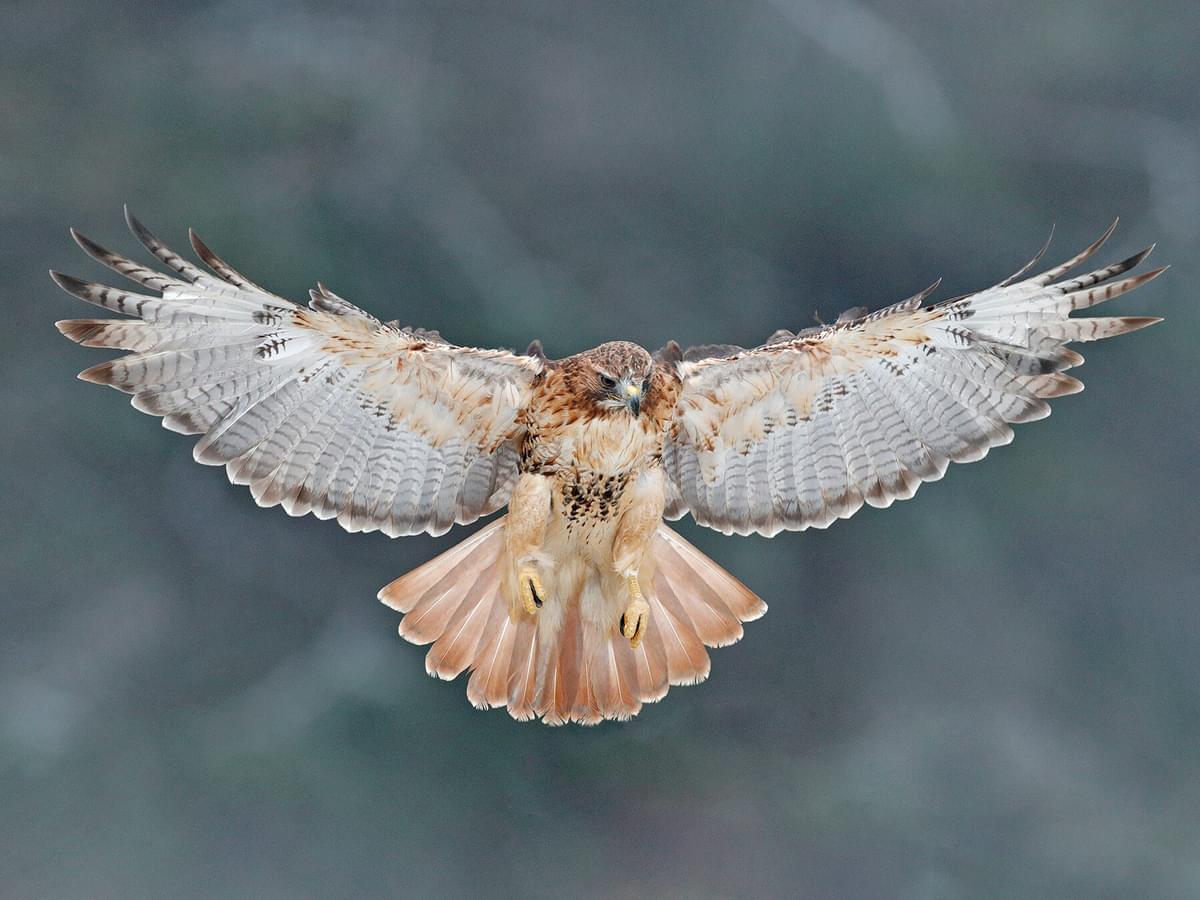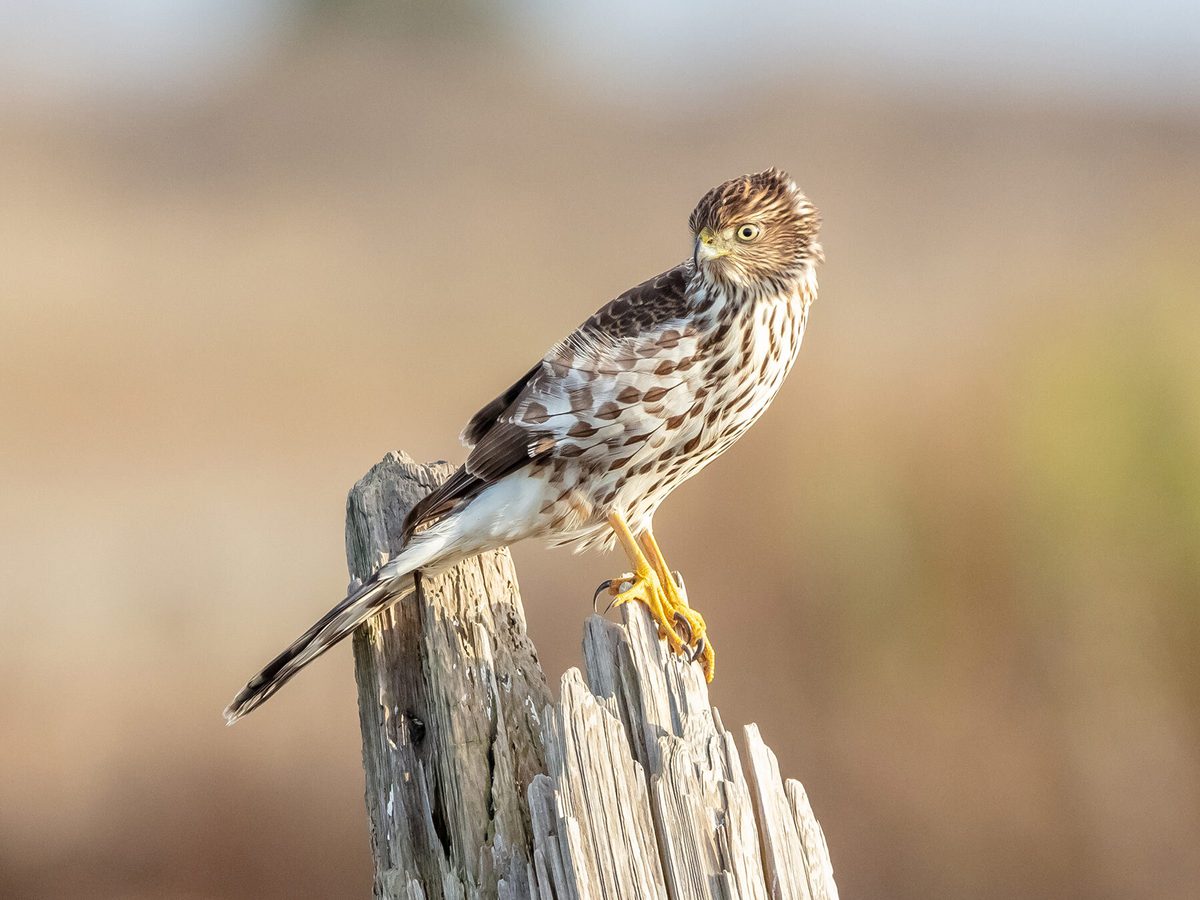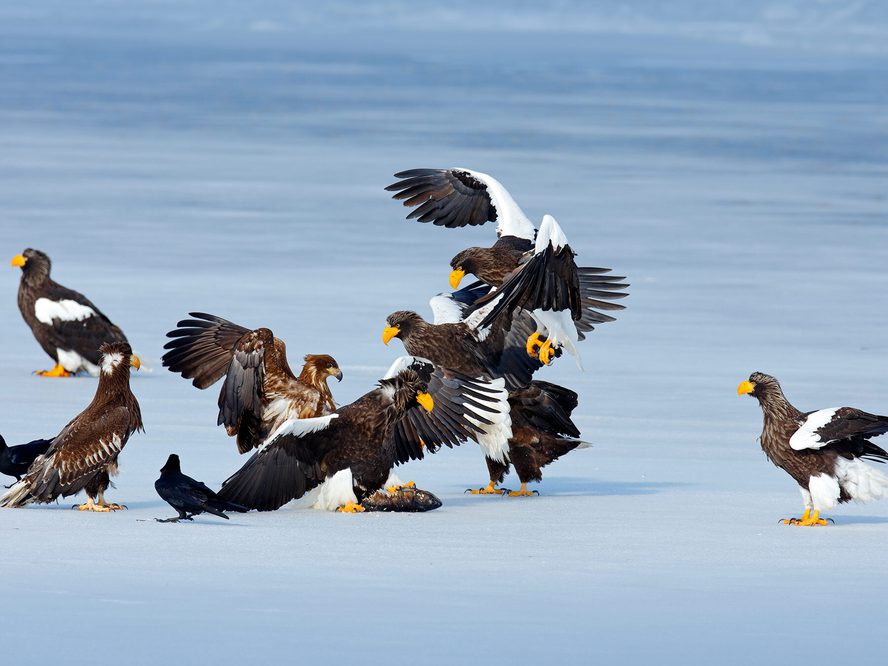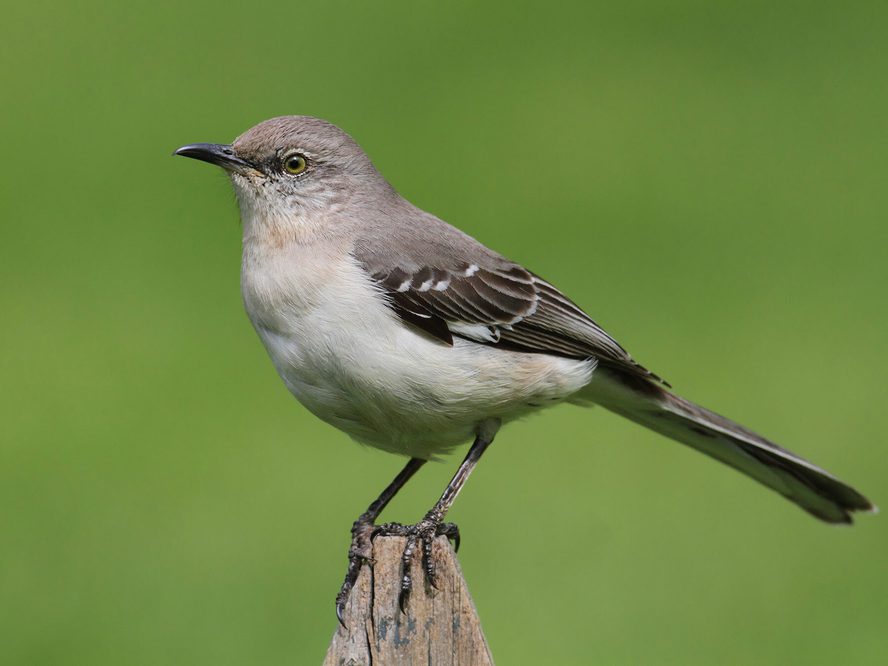Jump to Section
What Do Hawks Eat? (Complete Guide)
Last updated: 30 January 2022

As one of the most important predators within terrestrial ecosystems, hawks are a diverse category of raptors around the world. Given the wide variety that exists, it is not surprising that they eat a variety of prey. This may make you wonder, what do hawks eat?
Hawks are birds of prey, which means they are carnivores that dine on carrion (dead animals) or animals in which they hunt. That means their dining preferences vary based on the size of the raptor, location, habitat, and available food sources. Hawks diets mainly consist of birds, lizards, mice, rabbits, rats and snakes.
If you have ever wondered what hawks eat, keep reading to learn more about this majestic creature!
With over 200 species of hawk throughout the world, 25 in the United States, they live in a variety of habitats in different climates, so the feed they consume depends on what’s available. Mostly, hawks live in open areas like deserts and fields, where they can easily spot prey, but have been known to call wetlands, woodlands, urban areas, and rainforests home. Most commonly, hawks dine on:
- Birds
- Insects
- Lizards
- Mice
- Rabbits
- Rats
- Snakes

A Sharp-shinned Hawk perched on a tree stump, looking for food
What do hawks eat in the wild?
Hawks consume various insects and invertebrates including crickets, grasshoppers, dragonflies, moths, crayfish, and prawns. Also, lizards, turtles, snakes, and other reptiles are always on the menu. Some hawks have been known to succumb to venomous snake bites during hunting. Small mammals are another favorite hawk dinner including pikas, hares, rabbits, lagomorphs, shrews, rodents, lemmings, squirrels, voles, gophers, jackrabbits, and prairie dogs.
Hawks are interesting predators because they even prey on their feathered cousins. In fact, many of these raptors are avian specialists and will consume hummingbirds, songbirds, quail, pheasants, grouse, and waterfowl.
What do hawks eat in the city?
Due to urban growth and expansion, more and more hawks are now found in cities. In urban locations, hawks adapt their hunting habits to local meals, including squirrels, rats, mice, birds, reptiles, crabs, and bats. Although rare, hawks have been known to attack small dogs.

A Black Kite in the city
What do baby hawks eat?
A baby hawk’s diet comprises mostly smaller creatures, such as crustaceans, carp, catfish, lizards, and insects, depending on where they are located and what’s available. Also, depending on their age, baby hawks eat food regurgitated by their mothers.
What do hawks eat in the winter?
When the winter rolls around, many of the same food items that were available in the warmer months has gone into hibernation, migrated elsewhere, or are hidden under snow and ice. That means hawks are generally limited to small rodents like voles and carrion.

Red-tailed Hawk in the winter
How do hawks hunt?
Hawks have a variety of hunting methods including:
Aerial Pursuit
Aerial pursuit is a fast-paced hunting type occurring in deep forests where success depends on the element of surprise, acrobatics, and speed. Birds are the most common prey caught by this fast hunting form.
Co-Operative
Co-operative hunting occurs when multiple hawks work together to catch their prey, especially if the animal is larger. Typically, one hawk flies into an area which creates a retreat of all animals in that area, while additional hawks wait ahead to make the kill.
High Soaring
Hawks with large wings can soar at high altitudes for lengthy periods, which stresses out prey animals. Once ready, the hawk swoops down to make the kill.
Low Soaring
Low soaring is a strategy that occurs in open habitats where hawks can fly lower to the ground in a straight line. This hunting style relies on purpose and fast movements. Prey is typically spooked by this fast-moving raptor, and they scurry away, thus exposing them to attack.
Hover and Pounce
With the hover and pounce type, hawks fly low over an open area until finding small prey they hold directly over the animal then dive down to pounce.
Perch and Swoop
Perch and swoop are performed without starting in a flying position. With this hunting method, hawks select a prominent tree brand and overlook a hunting area. Once they spot their prey, they swoop down for the attack.

Coopers Hawk perched on a branch, looking for prey to swoop down on
Are hawks carnivores?
Because hawks only eat meat for their diets, they are considered carnivorous birds.
How to attract hawks to your backyard
You may fear seeing a hawk hanging around your backyard because of horror stories where hawks attack small dogs and cats. While they can attack pets, this is unusual activity. Despite this reputation, attracting hawks to your backyard has several benefits. Since their diet is comprised of rodents, they are excellent at keeping mice, rats, and even raccoons away. Hawks are also helpful if you have fish or koi ponds because they will not dive into the water to catch fish. They will, however, hunt the mammals and snakes that do hunt these fish.
To attract hawks into your backyard, you must provide enough shelter for nesting and food for consumption. They prefer tall trees with steady branches for scanning prey and perching. Plans with nuts and seeds attract rodents which further attract hawks. Bird feeders are an excellent hunting destination for hawks that prey on other birds.

A Red-shouldered Hawk in a backyard
Do hawks eat owls?
While hawks have been known to attack owls, they aren’t looking for food. It is mainly because an owl has ventured too close to a hawk’s nest. Disputes between birds of prey are not common in the animal kingdom.
Do hawks eat snakes?
Amphibians and reptiles are everyday dinner items for hawks, including snakes. Those that hunt snakes prefer non-forested areas where they have the best view of the ground-dwelling creatures. These hawks do not exclusively rely on snakes; they also hunt small mammals and aquatic animals like crabs and crayfish.

Red-shouldered Hawk flying off with snake prey
Do hawks eat birds?
Hawks eat birds that are smaller than them. Specific hawk species are known as “accipiter’s,” which means other bird species make up a significant portion of their diet. Accipiter’s hunt birds as large as grouse and as small as songbirds, robins, and hummingbirds. For this reason, suburban backyards with bird feeders are becoming a popular hunting destination for hawks.
Do hawks eat foxes?
Several hawk species are known to prey on foxes because they have the advantage of attacking from above, which any ground mammal cannot anticipate or react to. Some hawks are large enough to carry adult foxes away for consumption.
Do hawks eat ducks?
Although no hawk species is large or strong enough to carry some mature large breeds of duck, they shred their back using sharp talons that help them to transport them elsewhere. Small duck breeds, young ducks, and ducklings are incredibly vulnerable to hawks.

Goshawk launching an attack on prey
Do hawks eat grass?
Birds of prey, like hawks, are only carnivores, which means they only consume meat so no plants or vegetables for these raptors!
Do hawks eat rabbits?
Hawks that prefer to nest and hunt in open areas dine on small mammals like rabbits.
Do hawks eat fruit?
Since hawks are carnivores, they only eat meat, which means fruit and berries are not part of their diet.
On this page
- What do hawks eat in the wild?
- What do hawks eat in the city?
- What do baby hawks eat?
- What do hawks eat in the winter?
- How do hawks hunt?
- Are hawks carnivores?
- How to attract hawks to your backyard
- Do hawks eat owls?
- Do hawks eat snakes?
- Do hawks eat birds?
- Do hawks eat foxes?
- Do hawks eat ducks?
- Do hawks eat grass?
- Do hawks eat rabbits?
- Do hawks eat fruit?






